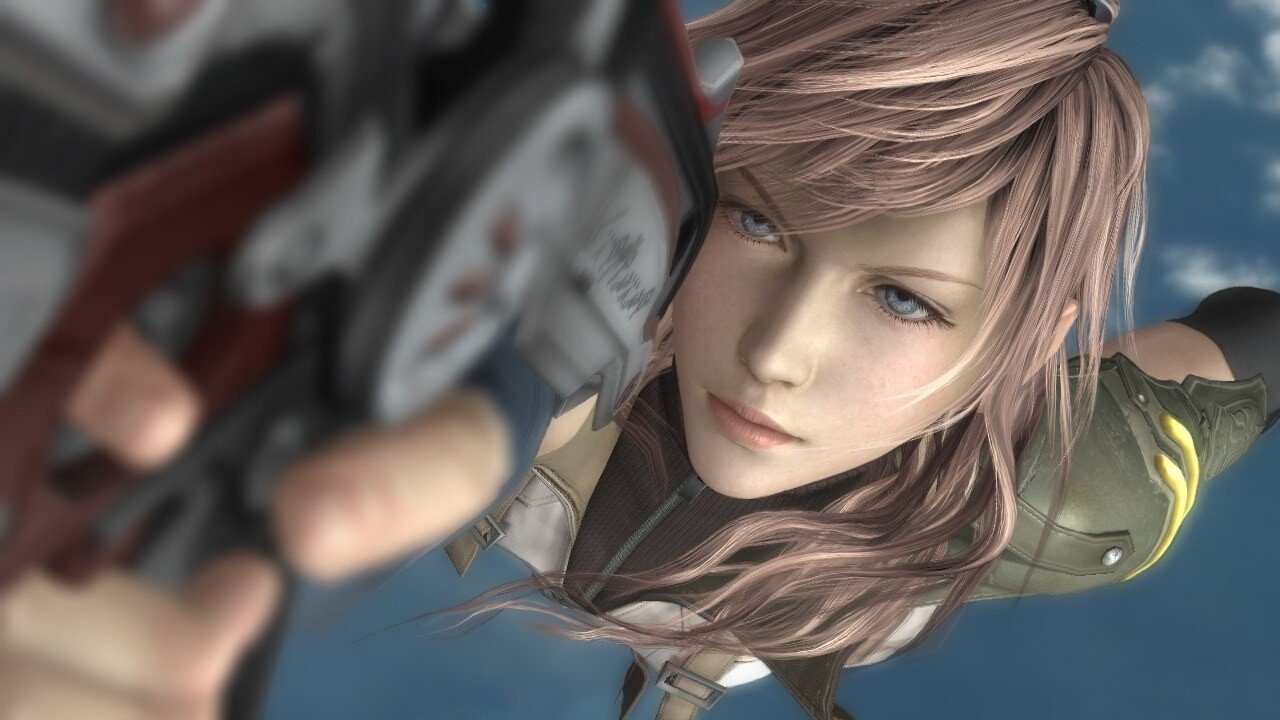I’m playing through Final Fantasy XIII-2 now for the purposes of my review, and I can’t help but notice a lot of the major mechanical differences between this game, and its predecessor. Final Fantasy XIII did extremely well for Square-Enix in the sales department, but the critics didn’t give it the universal acclaim that, up until recently, has been the assumed the reaction to any FF title.
In fact, the response to FFXIII was quite consistent in criticisms of linearity, and too many limitations on gameplay. Enter FFXIII-2 which, upon playing, feels very much like it was made with critics in mind. Did I complain about linearity in my own review? I sure did, and that criticism is addressed in the first hour or two of gameplay. Did I complain about how the original kept players from fully enjoying the combat system for too long? Yes, and again the battle system opens up very quickly. It seems like for nearly everything I might have complained about, FFXIII-2 is like an obsequious concierge at hotel; a concierge that remembers my harsh evaluation during my last stay and is quick to point how much things have changed in a whining tone. It feels like this is more than just addressing complaints to protect against reduced income, this is about wounded pride and trying to get it back.
In some ways, this is not really the Square-Enix that I’m familiar with.
To be fair, usually when I think of “Square” as a corporate entity, I’m actually thinking of “Squaresoft” the company that existed before the merger with its nemesis, the creators of the Dragon Quest series. That Square, not content to rest on the massive, surprise success of Final Fantasy VII in the west, expanded its spectrum of games to tackle a huge range of different settings and topics. There was the contemporary, viral mysticism of Parasite Eve, the political intrigue of Vagrant Story, the complex techno-religious mythology of Xenogears and even the turn-based strategy of Final Fantasy Tactics. Some of these titles were well received. Others were bold experiments that didn’t really resonate with the audience at large, though they found loyal followings with smaller groups. Whatever the case was, it was clear that Square, having found success, was willing to take chances and try new things.
This was nowhere more clear than in their flagship series, Final Fantasy itself. With each new instalment, the company would try new things, introduce new battle systems, entirely new characters and worlds. It was a way for the company to experiment, and while those experiments weren’t always met with approval across the board, the games in general were well received. A few games, like Final Fantasy X-2 didn’t fall under that category, but Square didn’t let that stop them. They continued to tinker, take chances and try new things.
Final Fantasy XIII and its successor are a different story. As the sales of Western games grew and the Japanese found themselves occupying a smaller space in a market that they (or at least Nintendo) had saved, they changed tactics. FFXIII was a direct response to perceived Western tastes. It tried to give players everything the Japanese thought they wanted, faster action, less complexity, more flash. It was all of these things of course, but in attempting to directly appeal to the Call of Duty crowd that was generating huge sales numbers, they alienated the fanbase that had been with them for years. The reviews and user comments made it readily apparent what they’d done, and FFXIII-2, cranked out in short order, is a deliberate, self-conscious effort to once again address perceived tastes.
It’s far cry from the Square that would do what piqued its interests because it saw a new direction no one had tried yet. Square of old got its reputation by innovating. It was more concerned with doing new things that seemed fun, rather than look at focus groups and polls and give players specifically what they were asking for. The new Square, with its reliance on established in house IP like Final Fantasy and Western series like Deus Ex and Tomb Raider isn’t really all that different from Electronic Arts and Activision.
There’s an old saying that Henry Ford, the inventor of the automobile once said, “If I had asked people what they wanted, they would have said a faster horse.” Maybe Square should stop relying on giving people what they ask for, and strive for the trail blazing they used to do in the past. They might surprise themselves with the results.




